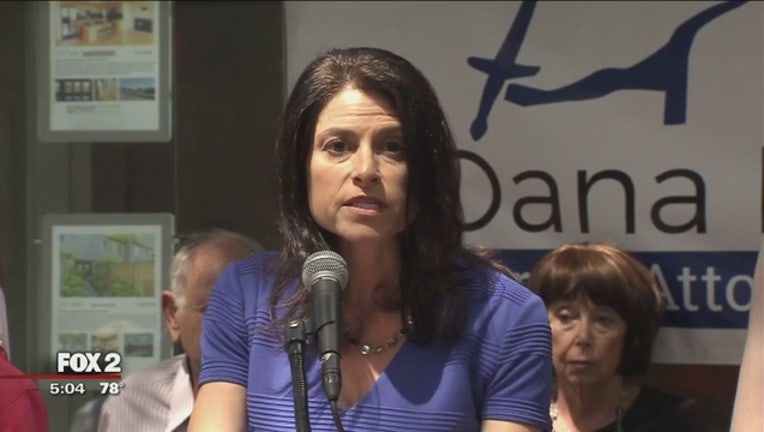Faith-based adoption agency suing Michigan after settlement

LANSING, Mich. (AP) - Faith-based adoption agencies sued the state of Michigan on Monday, challenging a settlement that prevents them from refusing to put children in LGBT homes for religious reasons.
The Becket Fund for Religious Liberty filed the lawsuit in western Michigan's U.S. District Court on behalf of Lansing-based St. Vincent Catholic Charities. It is among more than 90 agencies receiving state funding to help place children from troubled homes with new families, according to the complaint.
"The state's decision to exclude certain agencies and certain very successful agencies like St. Vincent simply because of their religious beliefs causes unnecessary harm to the countless kids they're serving now and could be serving in the future merely because the attorney general doesn't like what St. Vincent believes and has believed for over 75 years," said Nick Reaves, a lawyer with Washington-based Becket.
RELATED: Michigan deal bans LGBT discrimination in state adoptions
The lawsuit also names Democratic state Attorney General Dana Nessel, the federal Department of Health and Human Services and other government officials. Also suing are two adoptive parents and a former foster child who was adopted.
The suit alleges violations of the plaintiffs' First Amendment rights and the federal Religious Freedom Restoration Act. It was brought less than a month after the legal agreement was announced by Nessel and the American Civil Liberties of Michigan, which sued the state in 2017 on behalf of two lesbian couples who alleged they had been turned away because they are gay. Nessel has said such discrimination is illegal.
Spokeswoman Kelly Rossman-McKinney said Monday that Nessel had not yet reviewed the complaint, but it appears the plaintiffs' attorneys do not understand the settlement agreement.
"Upon accepting a referral ... the law does not provide an agency with discretion to refuse to provide the accepted child or individual with state-contracted foster care case management or adoption services that conflict with its sincerely held religious beliefs," she said.
A 2015 Republican-enacted law says child-placement agencies are not required to provide any services that conflict with their sincerely held religious beliefs. But the settlement says the law does not apply if agencies are under contract with the state - a determination challenged by those suing.
"The state's new interpretation is certainly inconsistent with the legislative purpose and the language at the beginning of the law as well, which talks specifically about the important role that faith-based agencies play in caring from children in need in Michigan," Reaves said.
The U.S. government is named as a defendant, he said, because Nessel relied in part on federal regulations to say the state cannot allow religious exemptions from allegedly applicable anti-discrimination laws, and "some clarity" is needed on the Trump administration's position.
As of February, Bethany Christian Services, Catholic Charities and St. Vincent were responsible for more than 1,600, or 12 percent, of the state's 13,000-plus foster care and adoption cases. Faith-based agencies have said they will shut down their adoption and foster care services rather than violate their religious beliefs.
One of the plaintiffs in the new suit, Melissa Buck of Holt, near Lansing, said St. Vincent helped her and her husband, Chad, adopt five special needs children who were in the state's foster care system - "saving them from physical abuse, hunger and neglect." She said other children "won't be as lucky" if faith-based agencies are forced to close.
Democrats, LGBT advocates and liberal groups have applauded the settlement for ending a "policy of bigotry."
After taking office in January, Democratic Gov. Gretchen Whitmer signed a directive to prohibit discrimination against LGBT people by state government, contractors and others. It superseded an order that former Republican Gov. Rick Snyder signed and, unlike his, does not provide an exemption for religious organizations.
___
Follow Eggert on Twitter: https://twitter.com/DavidEggert00

